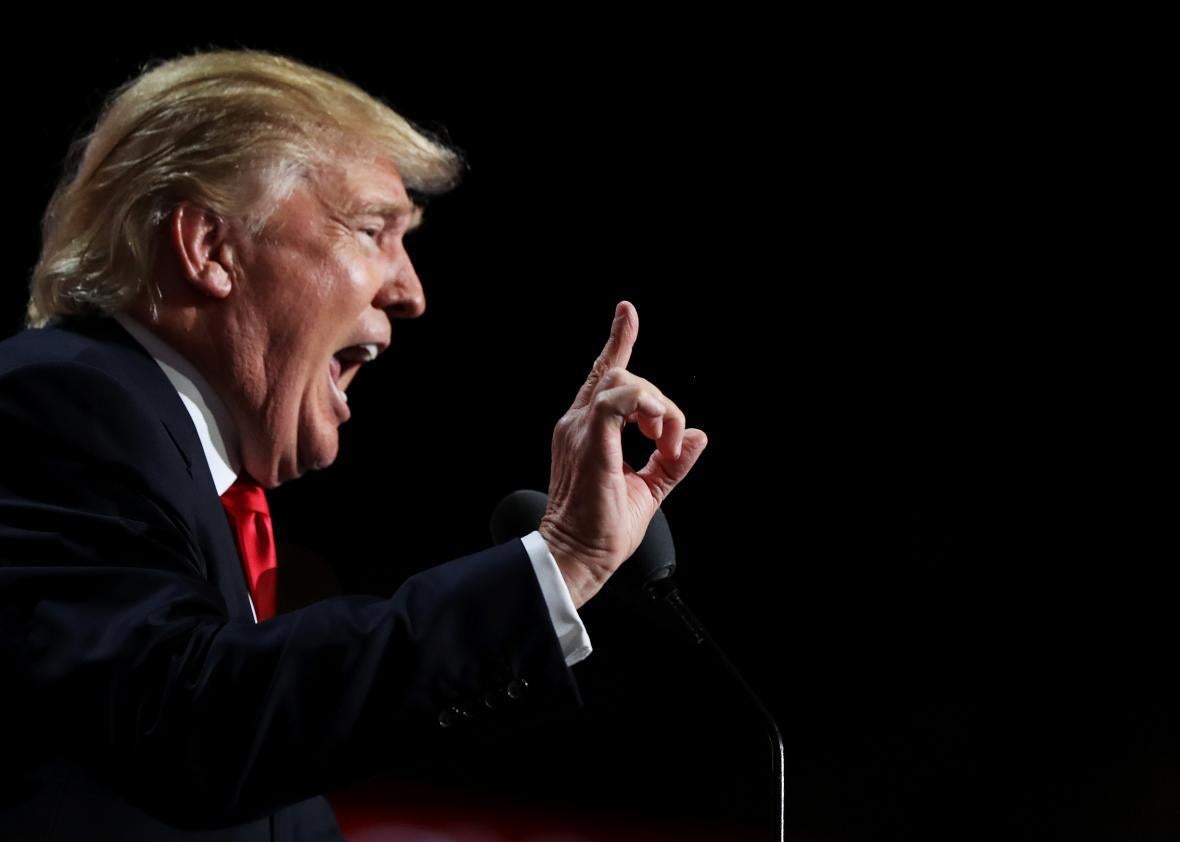Given a cascade of gaffes and bad campaign news in recent days, might Donald Trump ever consider dropping out of the race? Not so fast, Jamelle Bouie writes. “If life is a dominance game and losing is verboten—and for Trump, both things are true—then the only thing worse than national humiliation at a debate or on Election Day itself is dropping out,” Bouie argues. “Trump would be the first nominee to quit the presidential race. Next to that, a rebuke at the polls is nothing.”
Jennifer Granholm, who played Sarah Palin in mock debates preparing Joe Biden to face the Alaska governor in 2008, has some advice for whoever plays Trump in Hillary’s own debate prep sessions. “You can’t take it on as an impression like you’re Jimmy Fallon,” Granholm told Seth Stevenson. “You have to be Donald Trump and respect that person.” (Ben Mathis-Lilley offers a list of potential candidates for the Trump prep job, including Al Franken, Barney Frank, and Mark Cuban.)
In 1985, Jacob Weisberg, then a college student working at the New Republic, wrote a story about Roger Stone, a Donald Trump “surrogate and dirt-dealer.” We’ve reprinted the story, with Weisberg’s commentary. “Thirty years ago, I called him the state-of-the-art political sleazeball,” Weisberg remembers. “And I’ve got to hand it to him—in the years since, no one has come close to taking that title away from him.”
New York police commissioner William Bratton, who just retired, was L.A.’s police chief from 2002 to 2009. Leon Neyfakh interviewed Los Angeles Times crime journalist Jill Leovy about Bratton’s work in that city. Leovy remembered a man determined to “broker the difficult politics around policing.” “Some people would see him as completely cynical and inconsistent,” Leovy said, “but he always said, I don’t have to be about the principle, I’m supposed to be about the politics. I can change my mind.”
The eight-episode TV season is a great form, exploited to nice effect by this summer’s breakout series Stranger Things and The Night Of, writes Sam Adams. “There’s been, if not a groundswell in eight-episode seasons in recent years, at least a pleasingly consistent number of them,” Adams observes, “which indicates the TV industry is taking further steps toward smashing its prefab forms and asking how long is enough to tell a given story and how long is too long.”
For fun: One lucky Canadian family’s really, really good day hike.
This guy can’t be real,
Rebecca
